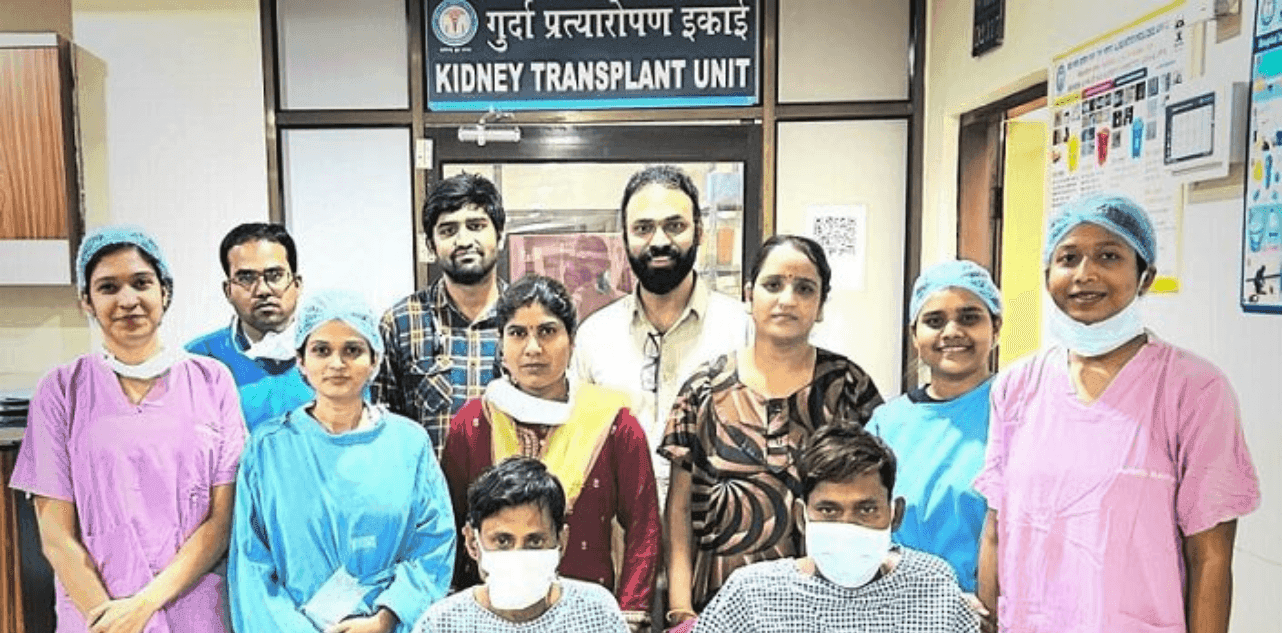Monday 16 February 2026
Swap Kidney Transplant’ Numbers Can Increase
Share

Kidney failure is a major healthcare problem, and transplanting a new kidney is sometimes the only medical solution. Less than 10% of patients with kidney failure undergo a kidney transplant with a family donor, and 1% do so with a kidney from a deceased donor (someone who has died and their organs have been donated). The rest of the patients with kidney failure remain on dialysis because they do not find a deceased donor, don’t have a family donor, or the family donor that they do have is incompatible.
The deceased donation and transplantation program in our city and our country is yet to come of age and become a powerful organ resource for these patients. It is now 15 years since the inception of this program in Mumbai, and yet organs from deceased donors still form less than 10% of all transplants performed here. In the west, this forms 90% of the transplants.
Several practical hurdles cause this shortage of transplantable organs. While every attempt is being made to correct this situation, there is a need to explore other avenues to minimize this shortfall. Therein lays the role for a mathematical match-making approach as an additional avenue for a solution to this problem.
If you’ve been advised a kidney transplant by your nephrologist and are not able to go ahead because your prospective kidney donor has a blood group that does not match, then a SWAP TRANSPLANT could be the solution.
Kidney exchange or ‘swap’ is a simple barter system. It is a ’give and take’ deal between two pairs of people, each pair consisting of a giver and a taker, where each pair benefits by receiving a suitably matched organ. In this simple barter framework, it is possible to maximize returns exponentially when the pool is large and complex algorithms for exchange are built into it.
All India Institute of Medical Sciences (AIIMS) Raipur has presently successfully performed its first ‘Swap Kidney Transplant’. It has emerged as the first among the newer AIIMS institutions and the first government hospital in the state of Chhattisgarh to carry out this complex and life-saving procedure.
Under the guidance of the Ministry of Health & Family Welfare, AIIMS Raipur successfully performed its first Swap Kidney Transplant, also known as a Kidney Paired Transplant (KPT). With this achievement, AIIMS Raipur becomes the first among the newer AIIMS institutions and the first government hospital in the state of Chhattisgarh to carry out this complex and life-saving procedure.
This significant milestone underscores the institute’s commitment to advancing healthcare and providing innovative treatment solutions for patients suffering from end-stage kidney disease.
It is estimated that Swap Kidney Transplant leads to a 15% increase in the number of transplants. Recognizing its potential, the National Organization and Tissue Transplant Organization (NOTTO) has recommended for the implementation of Swap donor transplantation to all the states and Union Territories as this option could increase the number of donors. NOTTO has also decided to have a ‘uniform one nation one swap transplant program’ to facilitate these transplants more effectively across the country.
In a Swap Transplant, a patient with renal failure who has a willing living donor—but is unable to receive the kidney due to an incompatible blood group or the presence of HLA antibodies—can still undergo a transplant by exchanging donors with another incompatible pair. Through this arrangement, both recipients receive compatible kidneys, resulting in successful transplants for both pairs.
In the landmark case at AIIMS Raipur, two male ESRD patients, aged 39 and 41 from Bilaspur, had been on dialysis for three years. Both were advised to undergo kidney transplantation. Their respective wives came forward as living donors. However, due to blood group incompatibility – one pair having B+ and O+, and the other O+ and B+ – direct donation was not possible. To overcome this challenge, the transplant team at AIIMS Raipur coordinated a successful swap transplant.
Each donor gave her kidney to the other recipient, ensuring blood group compatibility and enabling both patients to receive life-saving organs. The surgery was conducted on 15th March 2025, and all four individuals – both donors and recipients – are currently recovering well under close observation in the Transplant ICU.
This milestone reflects AIIMS Raipur’s growing capabilities in advanced medical care and its commitment to providing innovative solutions for patients battling chronic kidney disease.
AIIMS Raipur has played a pivotal role in the development of Organ Transplant in Chhattisgarh. The institute has successfully developed a renal transplant program, encompassing both living and deceased donor transplants. Six deceased donors have donated their organs in last two years.
AIIMS Raipur has also been first amongst the newer AIIMS to start Deceased Donor Organ Donation and Deceased Donor Kidney Transplantation. It is also the first in the state to start Deceased donor Paediatric Kidney Transplantation. To date, the institute has performed 54 kidney transplants with a graft survival rate of 95% and patient survival rate of 97%, reflecting its clinical excellence and commitment to high-quality patient care.
Newsletter
Stay up to date with all the latest News that affects you in politics, finance and more.